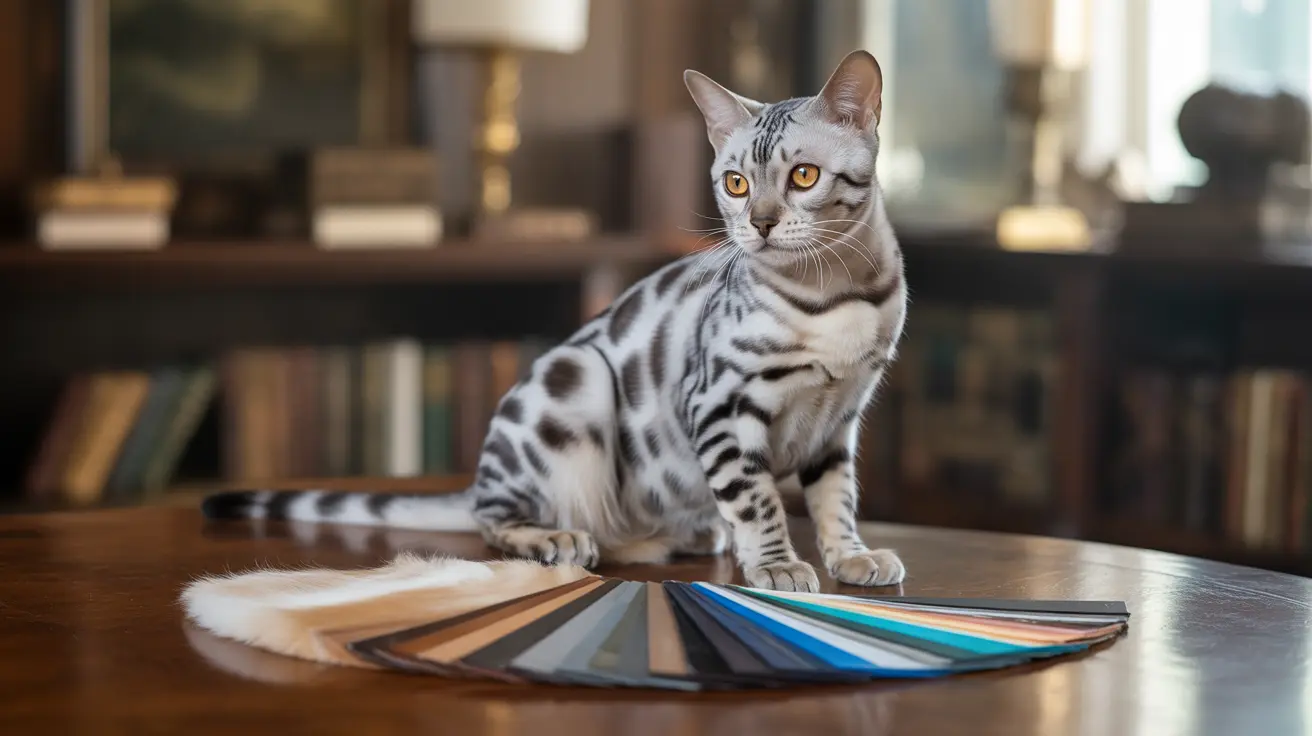Burmese cats are celebrated for their stunning array of coat colors and captivating personalities. From the classic sable to the ethereal platinum, each color variant offers its own unique charm while maintaining the breed's distinctive characteristics. In this comprehensive guide, we'll explore the fascinating world of Burmese cat colors and help you understand what makes each shade special.
Whether you're a potential Burmese owner, breed enthusiast, or simply curious about these magnificent felines, understanding their color variations is crucial. These colors aren't just about aesthetics – they're deeply rooted in the breed's genetics and history, making each Burmese cat truly unique.
Classic Burmese Color Standards
The Cat Fanciers' Association (CFA) officially recognizes four primary Burmese cat colors, each with its own distinct characteristics and appeal:
Sable
The sable Burmese is considered the classic and most prevalent color. These cats display a rich, deep brown coat that seems to shimmer in the light. The color is typically darker on the face, ears, and tail, with slightly lighter shading on the chest and belly. Sable kittens are born significantly lighter and develop their deep coloring as they mature.
Champagne
Champagne Burmese cats showcase a warm, honey-beige coat that gracefully transitions to darker points. Their unique coloring includes ashy brown markings on the face, ears, and tail, while maintaining a lighter underbelly. This sophisticated color variation is highly sought after among breed enthusiasts.
Blue
Blue Burmese cats exhibit a stunning medium to dark gray-blue coat with a distinctive silvery sheen. Their coloring is typically uniform throughout the body, creating an elegant appearance that's enhanced by their golden or green eyes. This color variation is particularly popular in show circuits.
Platinum
The platinum Burmese represents the lightest of the standard colors, featuring a pale, silvery-gray coat with subtle warm undertones. Their ethereal appearance is complemented by a lighter chest and underside, making them truly distinctive within the breed.
European and International Color Variations
Beyond the CFA standards, various international cat registries recognize additional Burmese colors, expanding the breed's palette significantly:
Chocolate and Lilac
These rare variations include the milk-chocolate colored coat and the delicate lilac frost. Both colors are more commonly seen in European breeding programs and offer unique alternatives to the traditional standards.
Red and Cream
Some registries also recognize red and cream variations, though these colors are exceptionally rare. These warm-toned cats showcase vibrant reddish-orange or soft creamy-beige coats, adding diversity to the Burmese color spectrum.
Genetics and Color Development
The fascinating world of Burmese cat colors is governed by complex genetics. All colors trace back to the original sable Burmese, with various genetic modifications producing the range of colors we see today. Understanding these genetic foundations helps breeders maintain color purity while ensuring healthy bloodlines.
Care and Maintenance of Colored Coats
Regardless of color, Burmese cats require minimal grooming due to their short, close-lying coats. Regular brushing helps maintain their natural shine and removes loose fur. Diet can also impact coat health, making proper nutrition essential for maintaining their beautiful coloring.
Frequently Asked Questions
What are the officially recognized coat colors of Burmese cats according to major cat associations?
The CFA recognizes four primary colors: sable, champagne, blue, and platinum. Other international associations may recognize additional colors including chocolate, lilac, red, and cream.
How do Burmese cat colors change as kittens mature into adults?
Burmese kittens, particularly sables, are born significantly lighter and develop their adult coloring over several months. The final coat color typically stabilizes between 1-2 years of age.
What are the rarest Burmese cat colors and how do they differ from the common ones?
The rarest colors include lilac, red, and cream. These variations are less common than the traditional sable, champagne, blue, and platinum, and are primarily recognized by European associations.
How can I identify the difference between sable, chocolate, and lilac Burmese cat colors?
Sable is a deep, rich brown; chocolate is a lighter, milk-chocolate brown; and lilac has a distinctive frost-like, pale lavender-gray appearance. The differences are most noticeable in natural lighting.
Does the Burmese cat's coat color affect its health or care requirements?
No, coat color does not affect health or care requirements. All Burmese cats need the same level of care, nutrition, and grooming regardless of their color variation.
Understanding Burmese cat colors enhances our appreciation for these remarkable felines. Whether you prefer the classic sable or are drawn to the rare lilac variation, each color represents a unique aspect of this beloved breed's heritage and charm.






